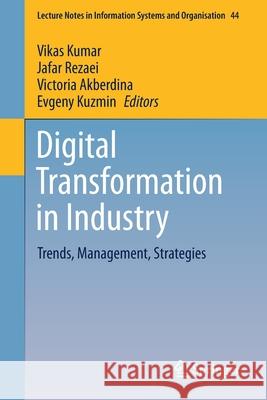Digital Transformation in Industry: Trends, Management, Strategies » książka
topmenu
Digital Transformation in Industry: Trends, Management, Strategies
ISBN-13: 9783030732608 / Angielski / Miękka / 2021 / 290 str.
Kategorie:
Kategorie BISAC:
Wydawca:
Springer
Seria wydawnicza:
Język:
Angielski
ISBN-13:
9783030732608
Rok wydania:
2021
Wydanie:
2021
Numer serii:
000456444
Ilość stron:
290
Waga:
0.42 kg
Wymiary:
23.39 x 15.6 x 1.63
Oprawa:
Miękka
Wolumenów:
01
Dodatkowe informacje:
Wydanie ilustrowane











